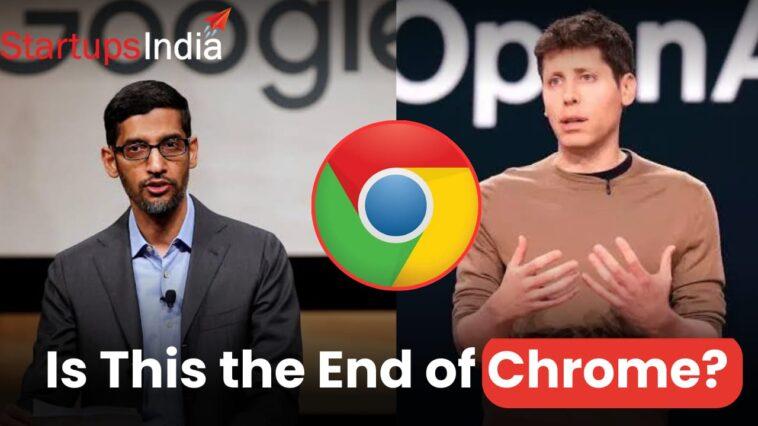For over a decade, Google Chrome has been the king of web browsers: fast, reliable, and part of our everyday digital lives. But change is on the horizon. OpenAI, the company behind ChatGPT, is rumoured to be launching its own AI-powered web browser, and it could flip the entire browsing experience on its head.
Let’s dive into what this means, how it works, and whether we’re really witnessing the beginning of the end for Chrome.
What Is an AI Browser, Really?
An AI browser is more than just a new way to look at websites—it’s a new way to interact with the internet.
Instead of doing everything manually (searching, clicking, filling forms), imagine telling your browser:
“Find me a cheap flight to London next Friday, book it, and email me the details.”
And it just… gets it done.
This is what OpenAI’s browser aims to deliver:
- Browsing that understands you
- Tools that complete tasks automatically
- A smart assistant built right into your browser
What Makes OpenAI’s Browser Different?
We’re used to browsers being passive. You search, you click, you read. OpenAI’s upcoming browser is expected to be active—a tool that thinks, plans, and acts.
Here’s what it could do:
- Summarise long articles instantly.
- Understand natural language commands
- Shop, compare, and recommend products.
- Fill out forms and complete bookings.
- Research and organise information across multiple pages.
- Use AI agents to automate your online work.
Instead of opening 10 tabs and juggling tasks yourself, you’ll be able to hand off the busy work—and focus on what really matters.
Chrome vs. OpenAI: A Real Threat?
Let’s be honest: Chrome isn’t going anywhere overnight. It’s fast, trusted, and connected to everything Google, from Gmail to YouTube.
But here’s the catch: Chrome was built for a pre-AI world.
And now, that world is changing.
OpenAI’s browser could:
- Skip Google search altogether.
- Help users complete tasks in a few steps—or none.
- Deliver answers and actions, not just links.
This challenges Google’s core business: search traffic and ad clicks.
If millions of users stop searching and start asking, the shift in behaviour could hurt Google where it counts.
Browsing in the Age of AI: What It Means for You
Whether you’re a professional, student, or everyday user, the way we use the web is about to become smarter and more effortless.
With an AI browser, you can:
- Save time on repetitive online tasks
- Automate research, booking, and content discovery.
- Browse smarter with real-time AI support
- Boost productivity and reduce digital fatigue
And for creators, marketers, and businesses? It’s a wake-up call.
What This Means for SEO and Content Creators
If AI browsers become the norm, traditional SEO strategies will need to evolve.
Why?
Because AI agents don’t browse like humans. They don’t care about flashy layouts or pop-ups – they look for clarity, relevance, and structured data.
So content needs to:
- Be clear, concise, and useful.
- Answer questions directly.
- Use semantic keywords and structured markup.
- Be optimised for AI consumption, not just human readers.
Think less about keywords and more about intent and answers.
Final Thoughts: Are We Seeing the Future of Browsing?
Let’s not exaggerate. Google Chrome won’t disappear tomorrow.
But if OpenAI’s AI browser works as promised, it redefines what we expect from the internet.
Instead of browsing page after page, we’ll just tell our browser what we want and it will go out and get it.
It’s not just a browser. It’s an assistant. A researcher. A task manager.
And yes, it could be the first real challenge Chrome has faced in years.




GIPHY App Key not set. Please check settings